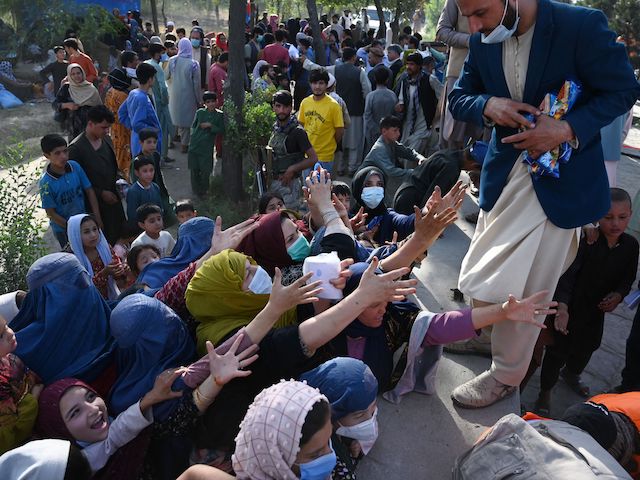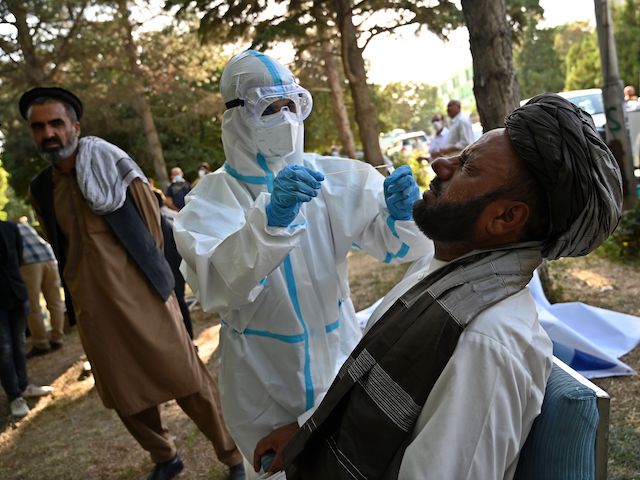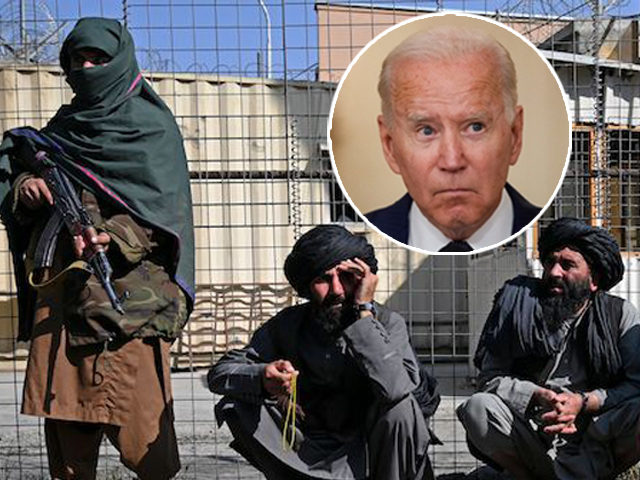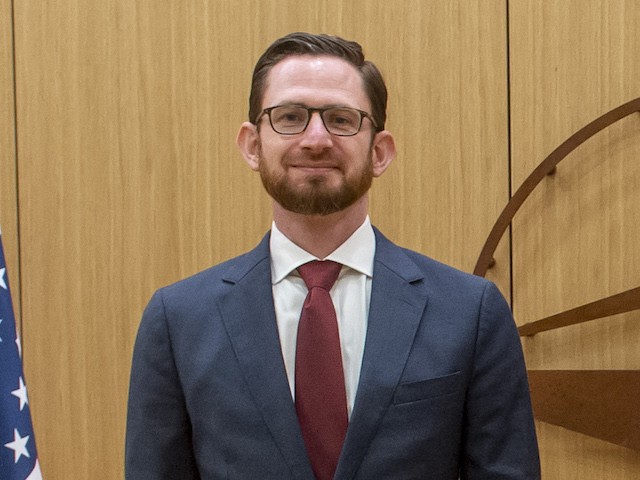In a phone conference with reporters on Monday, U.S. Special Envoy to Afghanistan Thomas West said the Biden administration is considering a “roadmap” to normalizing relations with the Taliban regime.
The vague roadmap West spoke of included some requirements the Taliban seems to have little interest in meeting.
West mentioned the roadmap to normalization in response to a reporter’s question about what “leverage” the U.S. has to make the Taliban “form an inclusive government for Afghanistan.”
West’s response indicated the U.S. and its allies are using “normalization,” and its attendant benefits, as an incentive for the Taliban to liberalize:
The Taliban have voiced very clearly and openly their desire to normalize relations with the international community; to see a resumption in aid; to see a return of the international diplomatic community to Kabul; to see sanctions relief. And the United States can deliver none of these things on our own, and we have to work together with the international community in order to see those things about. But that’s not an insignificant give and take, and again, we just want to first consult with our likeminded allies on exactly what the roadmap looks like.
“I think allies are going to continue to play a heavy role in Afghanistan, and Germany, the United Kingdom, France, and non-NATO, but the EU has I think heavy interests in Afghanistan as well,” he added. “And so we will all engage forthrightly and in a clear-eyed manner with the Taliban and with shared interests and objectives.”
West laid out some specific goals for the Taliban to meet:
We all want to see human rights, minority rights, and the rights of women and girls – including access to education at all levels throughout the country – respected, assured, and delivered upon. Statements are not enough.
We want to see steps taken to form an inclusive and representative government, and that’s a point I think is especially shared by many regional powers as well.
The Taliban’s “Islamic Emirate of Afghanistan” has thus far shown little interest in meeting any of those goals. The Islamic extremists talked a good game about treating women better than the pre-2001 Taliban regime, and its promises were met with over-the-top enthusiasm from humanitarian agencies, but, in practice, Taliban 2.0 has been only a little less repressive than Taliban 1.0 was.
The Taliban is still persecuting religious and ethnic minorities, abusing and killing citizens who violate its strict interpretation of Islamic law, and hanging people in public squares without much in the way of a legal process. Genocide appears to be back on the table for the much-abused Hazara minority.
As for “inclusive government,” the Taliban has made a point of appointing no one but male members of the extremist group and its terrorist Haqqani wing to high office.
Contrary to West’s declaration, statements have been enough to win some important concessions for the Taliban. Afghanistan’s rulers have effectively taken their own population hostage, leaving the international community with little choice but working with Taliban officials to deliver humanitarian assistance.

Internally displaced Afghan families, who fled from Kunduz and Takhar province due to battles between Taliban and Afghan security forces, collect food in Kabul on August 9, 2021. (Wakil Kohsar/AFP via Getty Images)
In October, U.N. Secretary-General Antonio Guterres conceded that resolving Afghanistan’s humanitarian crisis would be impossible if the Taliban’s economy collapses, and the consequences of such a disaster would be dire for the region and the world.
“Without food, without jobs, without their rights protected, we will see more and more Afghans fleeing their homes in search of a better life. The flow of illicit drugs, criminal and terrorist networks will also likely increase,” Guterres warned.
The U.S., EU, U.N., and NATO are rhetorically struggling to distinguish between cooperation, normalization, and recognition while the Taliban make very concrete threats to destabilize Central Asia, flood the West with refugees, give safe haven to terrorists, abandon millions to starvation and sickness, and perhaps even exterminate a few minority communities.
The U.N. took a shot at reclaiming some leverage on Wednesday by announcing it was able to pay about $8 million in salaries to 23,500 health workers in Afghanistan while bypassing the Taliban and its “health ministry.”
One of the major humanitarian concerns in Afghanistan has been that paying staffers and buying local goods to feed, shelter, and medicate the impoverished population would be impossible without Taliban cooperation. As Guterres indicated in his October remarks, it is difficult for humanitarian agencies to spend money in Afghanistan if the economy is completely shut down and the banks collapse.
The U.N. said on Wednesday it was able to reactivate a suspended World Bank program to pay $8 million in salaries and $7 million for supplies, and it found ways to get the funding directly to health workers in most of Afghanistan’s 34 provinces without the Taliban touching it. U.N. officials feared Afghan health workers might begin fleeing across the border if a means of paying their salaries and supplying their operations was not found.

A medical official wearing a personal protective equipment suit takes a swab sample from a member of the Loya jirga (grand assembly of Afghan elders) to test for the coronavirus at Kabul Polytechnic University, in Kabul, on August 5, 2020. (Wakil Kohsar/AFP via Getty Images)
West is scheduled to visit Pakistan this week for meetings with Taliban Foreign Minister Amir Khan Muttaqi, as well as diplomats from Russia and China, which have not placed any humanitarian or liberalization demands on the Taliban in exchange for normalization.
China and Pakistan, on the other hand, declined to attend a regional conference on Afghanistan hosted by U.S. ally India on Wednesday.
Taliban spokesman Zabihullah Mujahid said on Wednesday that his regime welcomes these regional conferences and believes the results will be favorable to the Islamic Emirate.
“We have no worries, the meetings will be for Afghanistan’s benefit because the entire region believes that the security of Afghanistan is for the benefit of all,” said Mujahid.


COMMENTS
Please let us know if you're having issues with commenting.